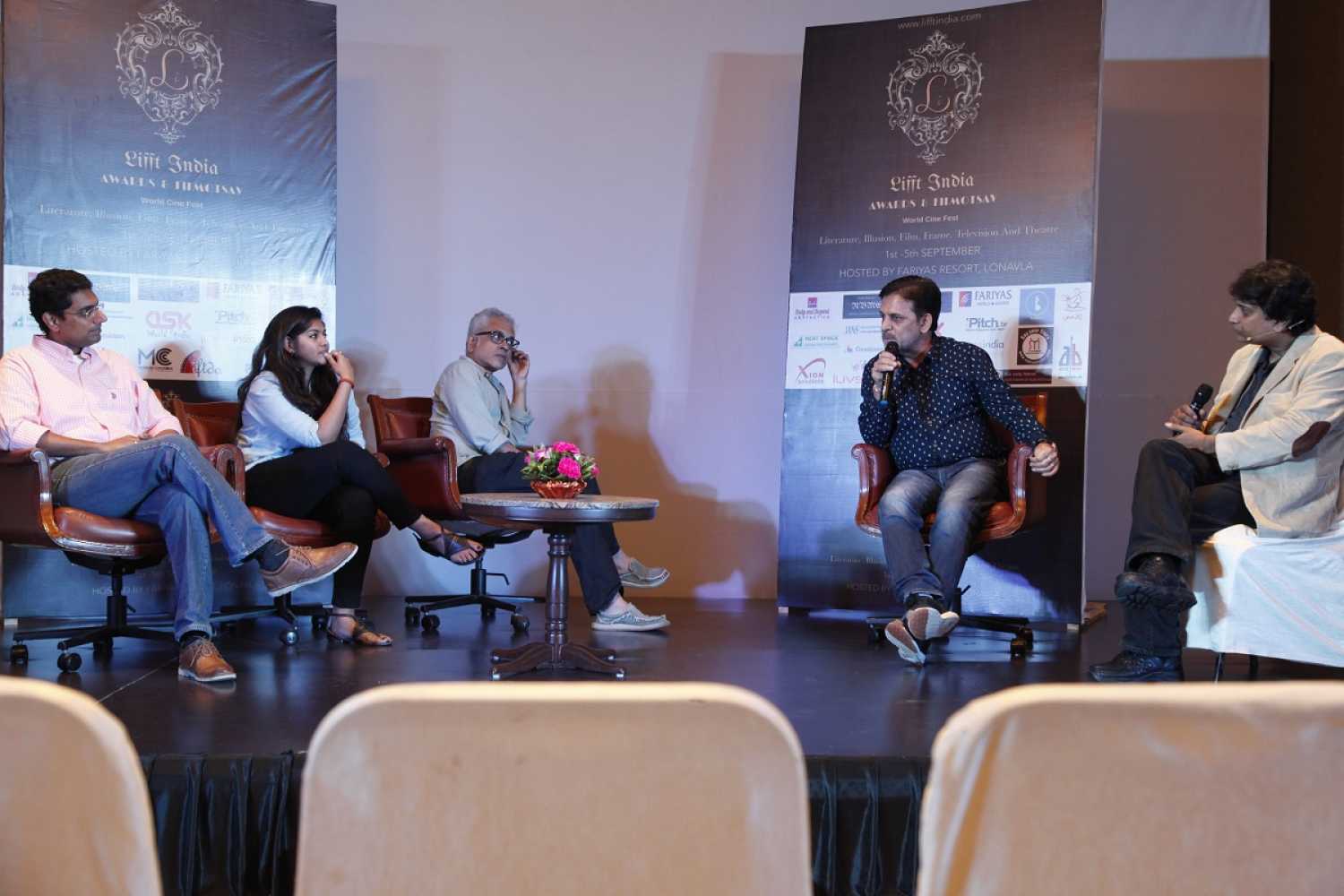Riju Bajaj, founder and director of LIFFT India, moderated a conversation in which he discussed the ways in which online platforms are changing traditional modes of film distribution in India and around the world.
Stars usually averse to online film release, not directors: Vista India's Rajiv Raghunathan
Lonavala - 03 Sep 2017 19:53 IST


Sukhpreet Kahlon
Day three of LIFFT India 2017 started off with an intense and informative conversation with the team from Vista India which comprised of CEO Rajiv Raghunathan, founder Suri Gopalan and AVP-content Noella Dias. Riju Bajaj, founder and director of LIFFT India moderated the conversation in which he discussed the ways in which online platforms are changing traditional modes of film distribution in India and around the world.
CEO Rajiv began by talking about Vista India, which is an aggregation and licensing company that works with premium platforms such as Netflix and Amazon. They help monetise content after the satellite and theatrical distribution is done. Their idea is to build opportunities as the digital medium allows filmmakers to maximise the distribution of their films.
Talking about the inception of Vista India, founder Suri described the company’s journey, which started off by distributing films in the physical medium through DVDs and CDs. Then the internet came along which enabled a logical progression for the company to go digital. Seeing his journey as being parallel to that of Netflix he described the transition as prior to being an online platform, Netflix acquired content through physical mediums. “As they transitioned, I followed and Vista became a supply chain company,” he said.
Responding to a question on there being a range of companies coming in to offer digital content and Vista India’s response to facing competition from them, Rajiv commented, “We are an enabler trying to build a bigger pie for everyone concerned. So competition is good since the pie only grows bigger.” He also added that the company is currently subtitling films in 29 languages, so the content is available in 29 countries across the world! He also added that the ultimate goal of the company was to reach out to more people.
Talking about the diversity of content available online, he added that with respect to online content, one doesn’t really judge whether or not a film is good or bad and there are diverse platforms like Hulu, Hook, Cinestaango, Netflix and Amazon Prime that have different focus markets. Emphasising this he said, “There are films which people may not have heard of but they are available online.”

Addressing concerns of filmmakers who wish to get their films onto digital platforms Bajaj asked the team on their requirements while acquiring films to which Rajiv answered, “In the past five years, we have licensed around 1,000 films to Netflix. The platforms do want the big releases like Dangal and other blockbusters but apart from that, there is also a need for great storytelling where the content is interesting and there’s fair production value and the film is cast well. These elements are key and the focus is not on the medium of shooting, as films are shot even on iPhones nowadays, but the emphasis is on the story and its execution.”
A pertinent question regarding the mindset surrounding a theatrical release verses an online release was asked by Bajaj, to which Rajiv responded that it was the stars who are usually averse to the idea of an online releases and not the directors.
Talking about the increasing popularity of original online content, Suri said, “Everyone is gravitating to where the eyeballs are. On local trains one sees people watching full length videos on mobiles. This doesn’t happen in the US but is happening here. So it may be difficult to get theatrical releases here but there are other avenues. For a programmer at PVR to consider any of the films being screened at this festival is almost impossible so filmmakers should use their marketing budgets and adopt a smart digital strategy which should be a combination of social media, a good release date and digital release.” He gave the example of the film U-Turn where filmmaker Pawan Kumar got funds for his film through crowd funding and self-distributed it and released it digitally, which Vista India did for him. Subsequently, the filmmaker has become a sort of a mini-studio where he has been successfully churning out films.
Emphasising on the need for filmmakers to embrace the change he said, “We’re there to help but the initiative needs to come from the filmmakers themselves.”
Addressing the question of censorship on digital mediums and the fact that currently films available online do not need to be necessarily censored Rajiv said that although Amazon Prime requires certified content, Netflix does not just as long as the film has been rated. This is only important as the viewers need to know whether or not the film is suitable for children and young adults. He also alluded to the current political climate in India as he said that although currently the internet was free but one wasn’t sure of what the future had in store in terms of censorship.
Finally, thanking Vista India for their support towards LIFFT India, Bajaj asked them what made them join hands with the festival to which Rajiv replied, “Riju has been chasing me since January so I couldn’t say that I was busy in September! I had to be here. This is the only way we get to share what we do”.
Related topics
LIFFT India


